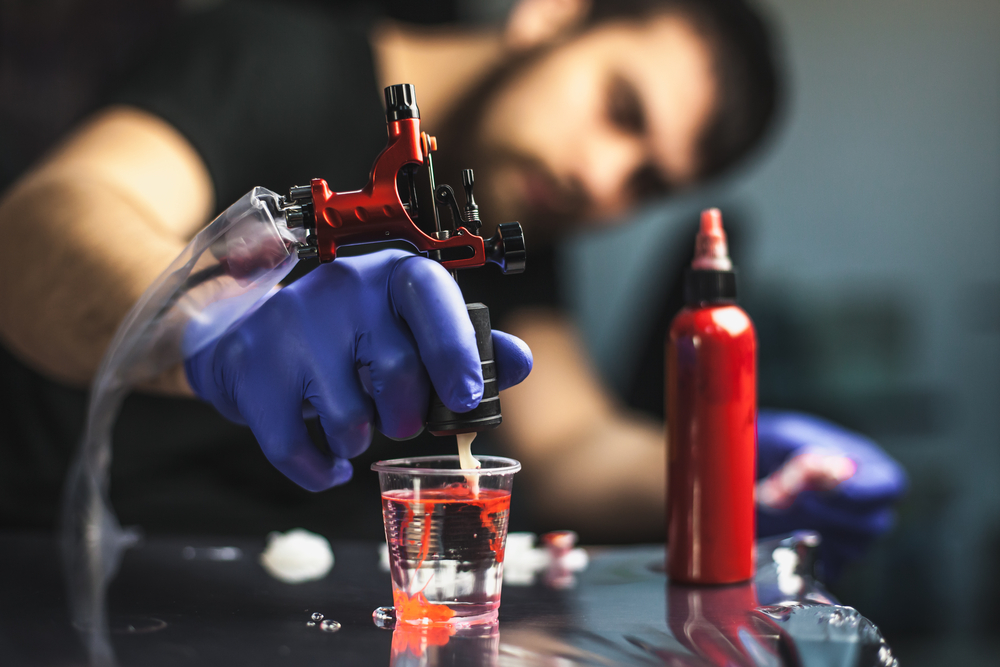Doctor warns holiday tattoos could lead to serious health implications, with risk of sepsis
Tattoos once came accompanied by stigma, from associations with war and prisoners, to the countless questions of “what will they look like when you’re 80?” However, recent years have seen a thorough shift in perception. Almost one in four people in the UK now have a tattoo, and increasing numbers of over 60s, 70s and 80s are embracing the trend and celebrating self-expression.
The trend has become so popular that you can now even get a tattoo on a cruise holiday, with Virgin Voyages opening their Squid Ink tattoo parlour onboard their Scarlett Lady vessel.
Temporary tattoos, such as henna designs, have also surged in popularity, particularly among travellers seeking a souvenir without the lifelong commitment. Traditional henna art, long practiced across South Asia, the Middle East, and North Africa, uses natural dye to create intricate patterns that fade over time – making it an appealing option for those wanting to celebrate their travels with a less permanent mark.
Often used to represent meaningful times and preserve fond memories, a tattoo can be a favourable souvenir from a particularly amazing holiday. However, registered GP Dr Asimah Hanif, working with the UK leading medical travel insurance provider* Staysure, warns holidaymakers of one thing they must be aware of when getting a tattoo abroad.
“A tattoo can be a great memento from a trip, but it’s important that Brits are aware that any health complications, such as a bacterial infection, will likely not be covered by your travel insurance if it’s caused by getting a tattoo,” Dr Asimah warns.

Part of the reason tattoos can lead to complications while travelling is the strain they place on the body. “Getting a tattoo temporarily weakens the immune system,” Dr Asimah shares. “The immune system is activated to try and fight off what it perceives as a foreign invader: the tattoo ink.”
Dr Asimah adds that a holiday setting also puts you at increased risk of an infection. “A tattoo is essentially an open wound whilst it’s healing, and a foreign holiday offers plenty of opportunities for infection.
“From a dip in a chlorinated pool to applying suncream, these factors increase the chance of bacteria entering the wound and a bacterial infection developing. In some cases, there’s also a chance you’ll be eating less nutritious food than usual, which again can put the body at higher risk of an infection.
“It’s also worth noting that while natural henna is generally considered safe, so-called ‘black henna’ – often used at tourist markets – can sometimes contain harmful additives like para-phenylenediamine (PPD), which can cause severe skin reactions and allergic responses,” Dr Asimah explains. “Always check what ingredients are being used if you opt for henna while abroad.”
“A bacterial infection is never good news, and they can range from a mild illness to something as dangerous as sepsis, which can cause the body’s vital organs to shut down.
“Most standard medical travel insurance packages won’t cover an issue caused by a tattoo, and the same goes for piercings,” Dr Asimah adds. “So, it might be wiser to wait until you’re home to get inked, where you can visit a trusted tattoo parlour and have access to medical care in the UK if an infection does occur.”
“Having a tattoo isn’t to be taken lightly so it’s best not to rush into it. The aftercare routine is key to helping it heal properly which takes time.”
Dr Asimah shares five top tips that will help protect a tattoo from infection:
- Always choose a licenced reputable tattoo artist with good hygiene and safety standards
- Gently wash the tattoo with mild, unscented soap once or twice a day and keep it covered.
- Keep the tattoo away from swimming pools and the sea, and pat dry with a clean towel or let it air dry after a shower.
- Keep your tattoo out of the sun for at least two weeks, or until it’s healed. If you’re in the sun, don’t apply sunscreen directly to the tattoo: cover it lightly with a clean bandage.
- Wear loose, breathable clothing to avoid irritation and refrain from strenuous activity which can lead to excessive sweating.
Tattoo Removal Aftercare: Essential Tips for a Smooth Recovery





